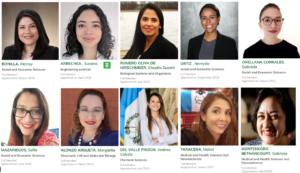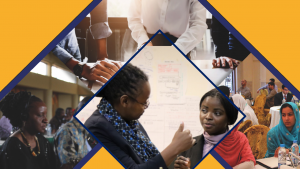Why research evidence? Insights from Zimbabwe
ZEIPNET and INASP recently piloted the first module of VakaYiko’s evidence-informed policy making (EIPM) course with parliamentary researchers in Zimbabwe. The training benefitted enormously from provocative addresses by Mr Willie Ganda, Director of Research Development & Innovation at the Ministry of Higher and Tertiary Education, Science and Technology Development. Speaking in a personal capacity, Mr Ganda shared a number of insights from his own work and study experience in Zimbabwe and the UK.
The Importance of Processes
Mr Ganda emphasized the need for institutional mechanisms to fight personal interests which can have an enormous influence on policy. For example, he pointed out that in Zimbabwe, where many policymakers own cattle, the penalties for stealing cows are disproportionately high, even in comparison with violent crime. A cattle thief will automatically be jailed for nine years, while the crime of rape does not carry any mandatory jail term and rapists can get away with much less jail time, or no jail time at all. Mr Ganda argued that research evidence can bring rationality and objectivity into the policymaking process to counter these interests.
Research evidence can also act as a counter to ideologically driven policymaking. In this case, Mr Ganda discussed a recent example, familiar to many of the participants, in which a politician visited Cuba, admired the policies, and aimed to implement the same frameworks in Zimbabwe. In a similar vein, he noted, policies can sometimes be based on contexts which are out of date or no longer relevant—“an old policy for a new context”. In these cases, research evidence can provide valuable contextual nuance to guard against a ‘one size fits all’ approach and support the dynamic nature of policy environments.
Use of evidence, he emphasized, does not just entail quoting facts, but having a structured process around the gathering and review of information. Policymakers may not act on the evidence at all, but must consider it. This process can even remain in place in cases where there is no evidence at all at the beginning of the policymaking process. In these cases, he recommended building in what he called a “buffer” in the policy, a “space for the ‘what ifs’”, to allow policymakers to respond to learning and evidence as it is generated.
Challenges of Using Evidence
Mr Ganda also acknowledged and discussed a number of challenges in using evidence to inform policy. One major challenge mentioned was the unavailability of research evidence. Recalling his own study days at Cambridge University in the UK, he described his surprise when he realized that information on Zimbabwe can be easier to come by overseas than in-country, and noted how well informed some foreign analysts were about the situation in the country. This is a key issue the course is addressing, with later modules providing participants with a guide to a wealth of open access online sources of peer reviewed and grey literature on public policy issues.
A second major challenge is the lack of capacity among policymakers. A recent capacity review of the Zimbabwean parliament revealed that 30% of MPs do not have any post-secondary education. Lack of capacity to understand research evidence, Mr Ganda pointed out, can lead policymakers either to accept or reject evidence without properly considering it, both of which can be dangerous. In response to these challenges, participants emphasized the importance of their role as translators, both in a literal sense (translating complex or abstract concepts such as the ‘basket of goods’, or hyperinflation, into Shona) and a figurative sense, interpreting complex technical research for MPs with varying levels of education.
With the aid of a photograph of Colin Powell, Mr Ganda emphasized that it’s not only developing countries which have challenges using evidence. Recalling the invasion of Iraq due to the supposed presence of WMDs, he reminded participants that it’s possible for an entire war to be waged on false evidence. EIPM is a work in progress for colleagues all over the world.
We were delighted to have the participation of Mr Ganda in the training. Having the course jointly delivered by facilitators from research, policy, and library backgrounds puts into practice the collaborative approach that underpins the work of VakaYiko. We look forward to welcoming other external speakers to pilots of future modules in Zimbabwe and Ghana.
The VakaYiko Consortium’s EIPM course is being piloted in four two-day modules in Zimbabwe and Ghana in 2015. In addition to building individuals’ skills and knowledge through the course, the VakaYiko approach also works to build processes for handling research evidence in government departments and to create a wider enabling environment of citizens, media and civil society.




